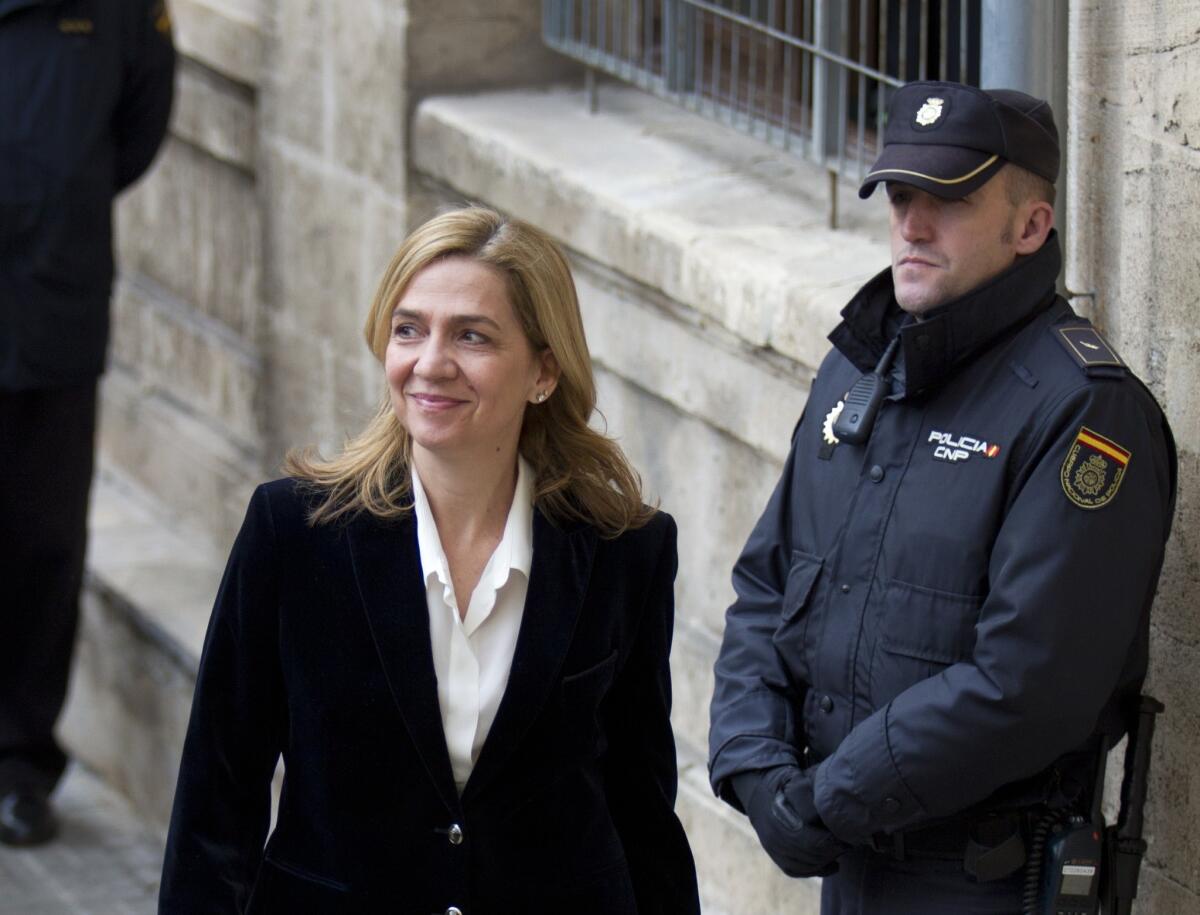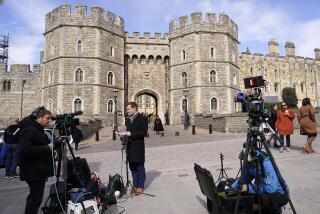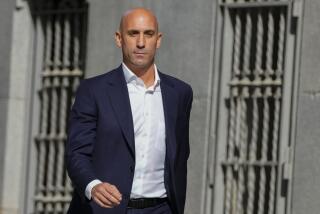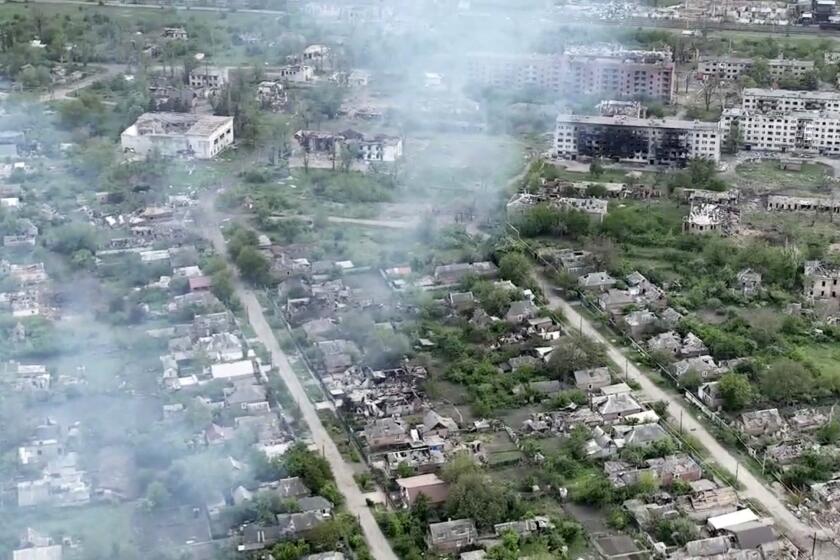Spain’s Princess Cristina moves closer to corruption trial

Days after her brother was proclaimed king, a Spanish judge upheld fraud and money-laundering charges against Princess Cristina on Wednesday, paving the way for a historic trial that could further damage the royal family’s reputation.
If convicted, Infanta Cristina could face 11 years behind bars. She and her husband, Iñaki Urdangarin, have been under investigation for years on suspicion of embezzling public money through charitable foundations they ran. Cristina testified before a judge on the Spanish island of Mallorca in February.
On Wednesday, that same court formalized charges of money laundering and tax fraud against the princess and nine other counts against her husband, and recommended they go on trial.
Lawyers for the couple can still appeal those charges. No trial date has been set.
Cristina, 49, is one of King Felipe VI’s two older sisters. She was conspicuously absent last week from the ceremonies celebrating her brother’s formal accession to the throne that their father, Juan Carlos, occupied for nearly four decades.
Last year, Cristina was cut from the royal household’s budget, and any mention of her husband was removed from the Royal Palace’s website. The couple lives in Geneva with their four children.
Cristina remains sixth in line to the Spanish throne.
Any trial is likely to add to the negative publicity surrounding the royal family, which has been hit by scandals that have tarnished its image. Polls show that more than half of Spaniards say they are in favor of a referendum on whether to scrap the monarchy and become a republic.
Felipe is seen as a fresh face for Spain’s royals as the monarchy tries to remain relevant in modern times. His father, Juan Carlos, was credited with ushering Spain into democracy in the late 1970s but saw his popularity plummet after he went on a lavish elephant hunt in Africa in 2012 while his subjects suffered from a stubborn recession and massive unemployment. The monarchy’s approval ratings remain at historic lows.
Frayer is a special correspondent.
More to Read
Start your day right
Sign up for Essential California for news, features and recommendations from the L.A. Times and beyond in your inbox six days a week.
You may occasionally receive promotional content from the Los Angeles Times.






